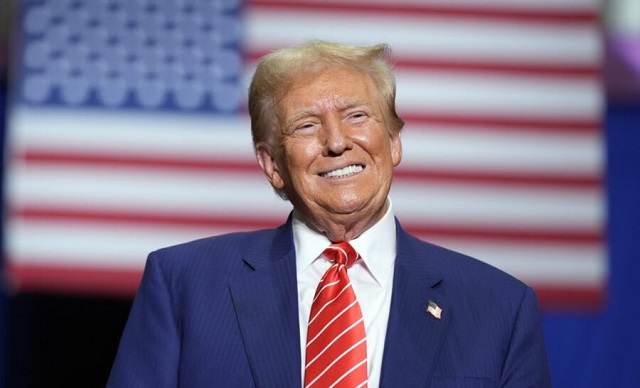
COMMENT | Gertrude Kamya Othieno | Across Africa, a surprising wave of celebration has followed Donald Trump’s election victory. Social media is buzzing with messages of euphoria: “Our man has won!” But why this shared triumph? For many, Trump’s conservative stance resonates. His rejection of LGBTQ+ rights aligns with traditional values in numerous African countries, where LGBTQ+ issues are contentious, often seen as foreign impositions rather than as human rights. But as Africans cheer this cultural alignment, are they ignoring the far-reaching consequences of his policies, especially on the environment?
It’s ironic, almost unsettling, that Trump’s win was announced on 6th November, Environment Day. This global day of reflection on sustainability and climate change couldn’t feel more distant from Trump’s acceptance speech, where he celebrated expanding oil production. Not a single mention was made of the environmental crisis. Yet, for Africa, climate change is not a distant threat; it’s an immediate, daily reality. From food insecurity and droughts to floods and health challenges, the continent bears the brunt of climate disasters it did little to cause. So, is it wise to celebrate a leader whose policies could deepen these vulnerabilities?
For many Africans, Trump’s cultural conservatism eclipses his environmental negligence. His resistance to LGBTQ+ rights is viewed as a stand for “African values.” But this selective endorsement misses the bigger picture. Africa’s climate resilience is inextricably tied to policies that Trump has repeatedly dismissed as unnecessary or alarmist. If he expands oil drilling, denies climate science, and sidelines sustainable practices, Africa stands to suffer the most. The enthusiasm for Trump may be heartfelt, but it risks enabling a leader whose stance on climate directly contradicts Africa’s survival.
There is also a notable, fervent support for Trump among Africa’s Christian Zionists. Many see him as a saviour of the “Promised Land,” trusting he will defend Israel and fulfil a divine mission. But is it truly God’s plan to support one “Promised Land” while neglecting the plight of Africa’s lands? As regions across Africa face desertification, erratic rains, and failing crops, would the same advocates still be as enthusiastic if they paused to consider the environmental costs of Trump’s agenda? Defending a religious ideal shouldn’t come at the expense of Africa’s ecological and social future.
Africa, despite emitting the least carbon, is hit hardest by climate change. Trump’s renewed emphasis on oil and industry threatens to accelerate the changes that bring drought, hunger, and displacement to African communities. With climate change affecting food security, healthcare, and governance, Africa needs leaders who will advocate for environmental stability, not one whose policies actively work against it.
Notably, the first foreign leader to congratulate Trump was the Emir of Saudi Arabia, underscoring the alignment of interests in oil. As these oil alliances strengthen, Africa’s fragile ecosystems and food supplies are bound to suffer. What benefit does Africa gain if it aligns culturally with Trump on social values, only to lose economically, environmentally, and in matters of public health?
The deeper question remains: when will Africa consider its long-term interests over short-term social alignments? Trump’s policies may resonate in select areas, but the reality is that they could exacerbate Africa’s crises. While celebration is understandable, it must be tempered with a critical assessment of what this victory means for the continent’s future. Supporting a leader whose policies threaten Africa’s survival is not a victory, it’s a warning. Can Africa afford to ignore it?
******
 Gertrude Kamya Othieno | Political Sociologist in Social Development (Alumna – London School of Economics/Political Science) | Email – gkothieno@gmail.com
Gertrude Kamya Othieno | Political Sociologist in Social Development (Alumna – London School of Economics/Political Science) | Email – gkothieno@gmail.com
 The Independent Uganda: You get the Truth we Pay the Price
The Independent Uganda: You get the Truth we Pay the Price


